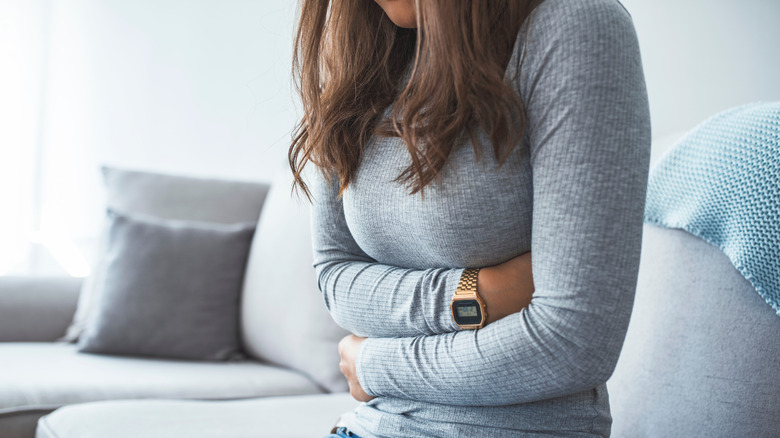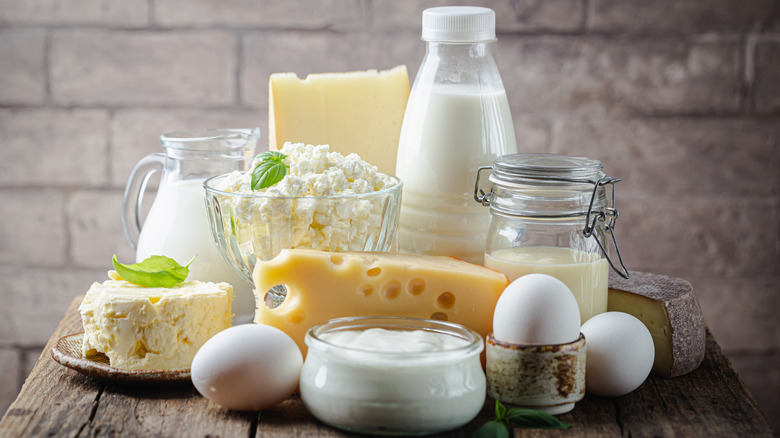Avoid Eating These Foods When You Have Food Poisoning
It's a sinking feeling that many of us have experienced — you've just eaten something that isn't quite agreeing with your stomach. As symptoms worsen, you realize you may have contracted food poisoning, or foodborne illness, which is no walk in the park. But there are foods that can help you feel better and keep you nourished at the same time.
Food poisoning is caused most commonly by bacteria like salmonella or e.coli, but can also be caused by parasites or a virus. Contaminated food becomes problematic when foods are eaten raw, as heat kills the pathogens before we eat the food (via Healthline). Food poisoning typically results in cramping, diarrhea, headaches, fever, nausea, and weakness.
Odds are, if you have food poisoning, you don't really have an appetite or are having trouble keeping food down. But if you do try to introduce food back into your body while battling food poisoning, there are some dishes to avoid.
When to seek additional medical treatment
Dairy products like milk and cheese, as well as fatty, overly seasoned, sugary, spicy or fried foods, are difficult to digest and may upset your stomach even more, according to Healthline. You should also avoid caffeine (in all forms), alcohol, and nicotine until you are fully recovered.
Additional foods that may cause bloating and irritation are fermentable carbohydrate-rich foods like apples, beans, cabbage, onions, and garlic, according to Medical News Today. Many also reach for Gatorade or Powerade when battling food poisoning, and although it seems counterintuitive, experts caution against drinking these. Electrolyte drinks can be high in sugar, which can irritate your system, while also not replacing diarrhea-related losses.
Food poisoning typically should only last for a few days, and people can usually start reintroducing bland foods as they start to regain their strength. However, you should seek medical attention if you are experiencing dehydration symptoms, a high fever, or blood in your stool. Doctors can provide additional treatment options to get you feeling better quickly and safely.

